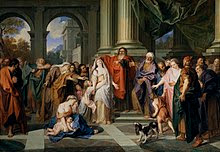The "Imperfect Man” And His Fears
Mark Twain wrote: “If you pick a starving dog and make him prosperous, he will not bite you. This is the principal difference between dog and man.”
It’s not only a dog that behaves in this manner. An African (Igbo) proverb states; that a fowl does not forget the man who plucked her feathers during the rainy season.
Besides, I saw a certain lioness hug and kiss a woman who rescued and nurtured her when she was a motherless cob. The lioness and the woman meet themselves several years later. Yet, the lioness didn’t forget the kindness shown to her.
Furthermore, an unwell monkey was rescued by an animal charity. After receiving some treatment, the Monkey was to be returned to the jungle.
The monkey stopped, hugged, and kissed every member of the team that treated him, then bade them goodbye before he went into the bush.
The point that I am trying to emphasize is; that animals don’t forget kindness.
However, animals and other non-humans don’t just kill unless it is for food. In other words, they don’t kill what they don’t eat, except when they are threatened - an example of a nonhuman that behaves in this manner is a bee.
If you "pick up a bee from kindness" (Sufi proverb), it will sting you. It is not that a bee likes to sting without a cause, it is because a bee always feels threatened.
And so, a man is like a bee, he feels threatened all the time. He feels threatened by visible and invisible things. He is threatened by people who seem to be doing better than him, and by those he believes he is doing better than. Because of this inherent threat in man, he is continually unhappy.
Moreover, when the threat facing man is imaginary, that’s when he is at his element to do evil. And then he will kill whether threatened or not. At this point, he kills what he doesn’t eat and eats what he didn't kill - like taking what he doesn’t need.
Africa’s politicians, especially those from Nigeria, loot public treasury not because they need the wealth, but just because they are faced with imaginary fears - the fear of losing power. And to consolidate power, they must steal all the money to fight imaginary enemies.
Even in Capitalism, during senior management courses to be precise, Threats in (SWOT) – Strengths-Weaknesses-Opportunities-Threats Analysis; is readily singled out.
You are always told to keep looking out for threats that might burst your business and bring you down as a manager. SWOT Analysis is a topic for another day.
Usually, threats come with education and exposure. Uneducated people live their lives because they haven’t studied SWOT analysis. Children are friends with all because they know nothing about threats.
Thus, an African politician, who is normally educated or has an exposure, will loot the public treasury, armed with a financial war chest to fight his ‘enemies’. Likewise, a capitalist who equally has contacts is readily looking for threats that may possibly bring down his business.
But if these people can’t find threats, what do they do? Well, they have probably read 48 Laws of Power, by Robert Greene. In fact, Law 2 says “You have more to fear from friends than from enemies. If you have no enemies, find a way to make them.”
Hence, the African politician who can’t find enemies will start throwing darts at opponents. And if any of his opponents should respond to his mischief, that opponent becomes that elusive threat that he’s been searching for. Then the politician will use his looted funds to destroy his imaginary foe.
In addition, the fear of the unknown may drive corporations to engage in corporate spying. This illegal activity will eventually create corporate enemies the company has been longing for.
After all, Robert Greene and others say for a man to succeed he needs an enemy or enemies. That is the true nature of man.
Perhaps it all started in the beginning. According to the Christian bible, Genesis 6: 5-6, “the Lord saw that the wickedness of man was great in the earth and that every intention of the thoughts of his heart was only evil continually.” So, He regretted creating “the imperfect man” - and his fears.



